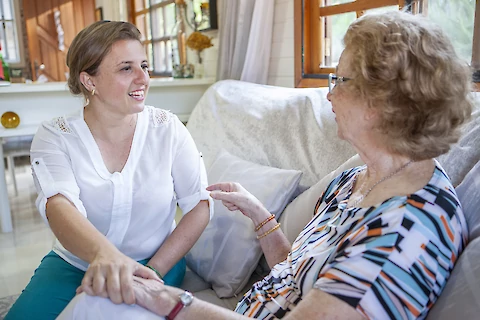
We often associate dementia with a sense of uncertainty and worry, particularly if you suspect a loved one shows signs of it. Identifying early symptoms represents a crucial step in managing this condition. This blog post aims to serve as your guide, providing valuable insights into recognizing signs of dementia, addressing your concerns with compassion, and understanding the importance of early professional advice. We'll also help you navigate this potentially challenging path, offering practical strategies after an initial diagnosis.
Recognizing the Signs of Dementia
Dementia often starts subtly, with symptoms you may easily mistake for typical signs of aging. You might notice forgetfulness, difficulty performing familiar tasks, or changes in mood or personality. While everyone has off days, you should consider professional help if you observe these changes consistently. Make sure to look for notable changes in behavior, memory, and cognitive abilities.
Addressing Concerns Empathetically
It's essential to approach concerns about a loved one's health with empathy and respect. The possibility of dementia will also cause fear and angst for your senior family member. Initiate a conversation in a comfortable environment, use simple and direct language, and patiently listen to their feelings and thoughts. It's crucial not to rush or force the conversation. Make sure they know you're there to support them.
Seeking Medical Advice Early
If you believe your loved one may be exhibiting signs of dementia, it's crucial to consult a healthcare professional. Remember, an early diagnosis may open up options for managing the condition and planning for the future. The initial visit might involve a comprehensive medical evaluation, including a review of health history, physical examinations, and cognitive tests. Try to accompany your loved one during this visit and provide the medical team with as much information as possible.
Approaches to Dealing with Initial Diagnoses
Receiving a dementia diagnosis may seem overwhelming, but knowledge is power. Take the time to understand the type and stage of dementia your loved one is in and what changes to expect over time. A wealth of resources is available to guide you on dementia management, from lifestyle changes to possible medication options.
Remember that you don't need to do this alone. Professional caregivers will provide valuable support, helping manage your loved one's symptoms and maintain their quality of life. Individuals trained in dementia care will offer insightful advice on how to balance caregiving and your personal life effectively.
We Want to Help
The steps involved in caring for a loved one with dementia include recognizing the signs, initiating an open and thoughtful conversation, and seeking professional advice early. Although it may seem overwhelming, remember that you're not alone. Senior Helpers Greenville can help. For those based in Simpsonville, Greenville, we invite you to explore our dedicated dementia care. Contact our compassionate and knowledgeable team to discuss our premium senior care services, including Wellness Watch and Personal Care. We will help make this journey more manageable, providing the support you and your loved one need during this time.